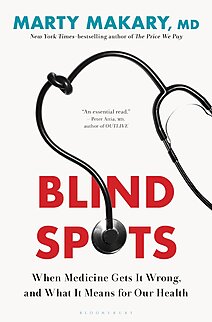Public health researcher Dr. Martin Makary claims in his new book, Blind Spots, that “the pandemic was not a one-off in how the medical establishment works. In fact, it was more the norm than the exception.”
Dr. Makary says that dogma, groupthink, and the suppression of scientific debate describe the culture of the modern medical establishment. He provides examples of public health recommendations and medical practices that persist despite lacking evidence or being shown to be harmful. Dr. Makary discusses weaknesses of the peer-review process for publishing scientific articles, alleging government research grants and the preferred narratives of “medical elites” affect the nature and quality of medical research. How did the medical establishment get this broken? Did public policy break it? What policy reforms can repair it? Please join us in discussing the book and its implications with the author.
Lunch to follow.

